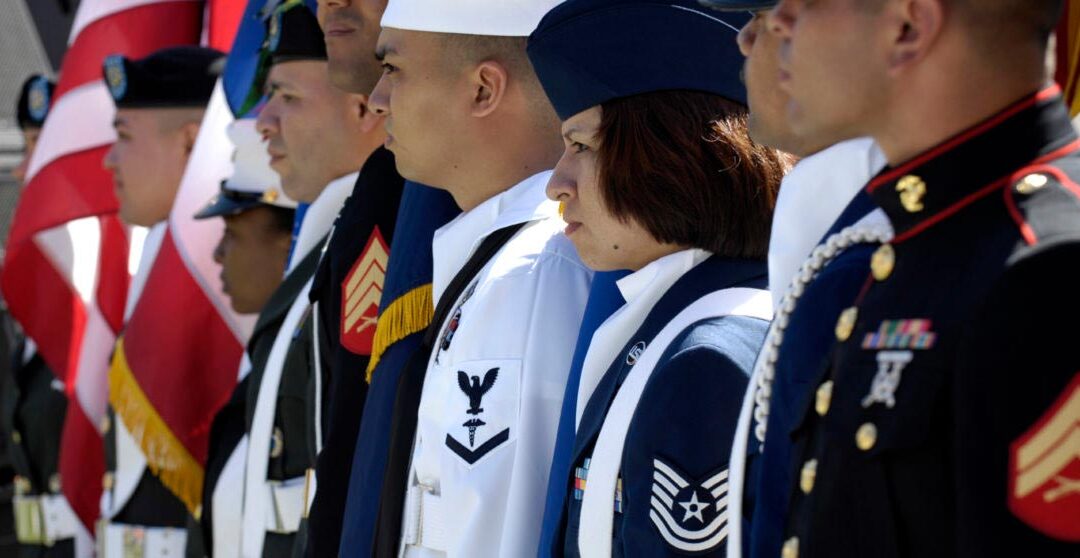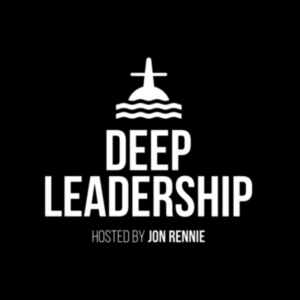Deep Leadership Podcast #130
Read More
Anthologies: Ensuring a Successful Author Collaboration
Authors have been working together on anthologies for centuries. Why?
- Shared workload – multiple contributors rather than one author writing an entire book on their own.
- Benefit from varied experiences and talents.
- Multiple authors typically mean multiple audiences – and multiplied people working on marketing the book.
- Anthologies can be a great way for a group of authors to “share” or “swap” audiences to grow their readership.
My friend and client, Fred Stuvek Jr., has recently written an anthology featuring 15 contributors – no mean feat! Since Fred and I have been working on the marketing piece of his publishing plan together, I had a front row seat to how he worked with 15 other collaborators to create The Experience of Leadership. I was so impressed with the way he led this project, that I asked for his advice on how to ensure a successful collaboration when working on an anthology. Enjoy his great advice and tips below.
The Art of Author Anthologies: How to Ensure a Successful Collaboration
The reasons for me wanting to write The Experience of Leadership are detailed in the introduction of the book. I chose an anthology format for The Experience of Leadership to highlight the principles and practices of successful leaders across the spectrum, asserting that the reader would find this approach informative and inspiring. For anyone who is considering using such a format, here are the issues which are central to a successful collaboration, and how I addressed them.
1. Desired outcome
An anthology was the best path to the desired outcome of my book – I began with the end in mind.
“I wanted to cut through the generalities and nostrums about leadership and dive into the nitty-gritty details of how to obtain the experience and skills that great leaders display and aspiring leaders can learn from. So, I assembled a broad, diverse group of individuals who have attained success in various arenas in order to understand how their leadership journey unfolded—piece by piece.” – The Experience of Leadership
To read more on why I chose this format, read the full book introduction.
2. Leadership
While some book anthologies will have an equal workload among authors, others will be the project of a single author with limited roles and expectations from the other contributors. Regardless of format, projects work best when there is a leader in place. Someone leading the charge in curating content – often writing additional content – and to organize each step of the process and keep things moving along.
3. Team
I had specific criteria in mind when choosing my writing team as I wanted participants who were actively involved in leadership development and in high profile leadership positions. I sought those with a range and diversity of experience in three fields: military, education and sports.
4. Clarity
When inviting other authors to work on The Experience of Leadership, I was very specific as to the goal of the project, what issues we wanted to address, and what topics to consider. At the same time, each participant understood he or she had the latitude to address any topics or make any recommendations they believed were instrumental in the leadership development process.
5. Communication
Throughout the process I kept everyone informed as to our status on attaining our objectives or milestones. Routine updates were sent so that everyone was fully informed. There were no surprises.
6. Transparency
As we went through the multitude of steps required to complete the project and the book, I was completely transparent. I solicited their feedback on a range of issues, both large and small, to ensure all views were considered. I welcomed the contrary opinion, and even constructive criticism, understanding that any comments made were done so with the purpose of delivering the highest quality product possible.
7. Respect
There was mutual respect amongst all parties, which was conducive to an open, sometimes, free-wheeling exchange of opinions as we went through the necessary iterations which are essential to continual improvement.
8. Humility
No one has all the answers and getting advice or help from those you collaborate with is important, imbues trust, and fosters a closer collaboration as everyone is involved and has a say in what is going on. Check your ego at the door, understanding that asking questions and getting advice is not a sign of weakness, and is quite the opposite. For those of you who are in the midst of a collaborative project, or considering a collaborative approach, keep the above points in mind. You will discover it is a very practical and worthwhile approach to generate views and advice which will be welcomed by your readers. Good luck, and if anyone has any questions or would like to brainstorm on a project you have in mind, do not hesitate to leave a comment below or contact me directly.
Read More
Lessons Learned from my Military Experience
There is tremendous value and benefit to having military experience. It has had a lasting impact on me and I am thankful for the experience. I learned a number of lessons and values which had a direct impact on my ability to be successful in later endeavors and throughout life. Chief amongst them are:
Discipline – Discipline is the soul of your journey; it is one of the most important traits required for success in whatever you strive to accomplish. Discipline gives you the will to take the necessary actions to improve yourself, the courage to face your fears, and the self-control to stick to a regimen or a plan. A lack of discipline results in excuses and distracts you from doing what is necessary to complete the mission and be successful. In the military, the consequences can literally be the difference between life and death as if you do not carry through you jeopardize your team or unit. While the consequences are different, the same thing applies in the business world. If you don’t have the discipline to push through and the self-control to do what is required of you to do as part of the bigger picture, those lapses will result in compromised performance.
Teamwork – All teams consist of groups of individuals. While the individuals may be highly skilled and capable, team success is predicated on how the individual capabilities of the team can be harnessed so they function as a cohesive unit in the most effective and efficient manner possible. In the military, there is a lot of bonding that goes on through basic training exercises, drills, and maneuvers. Everyone has a specific role and each individual is held accountable for their work. However, the focus is on unit performance versus individual performance, with everyone having a shared sense of commitment and duty since everyone is part of a greater cause. This process and commitment results in an ethos with a set of core values and beliefs that promotes camaraderie and a sense of interdependence. Everyone has each other’s back with the character and integrity to maintain the highest standards possible in the interest of the greater good. Just like the military, life is a team sport, and those same lessons carry over.
Planning – You spend a lot of time in the military training and planning. First and foremost is clarity, or in other words, a clearly defined mission. The goals and actions need to be aligned, everyone needs to understand what needs to be done, what their role is, and why it is important. The why is important since a greater understanding yields a stronger belief which reinforces the commitment. You spend a great deal of time reviewing and rehearsing the plan, while at the same time looking at three scenarios – what is the likely outcome, what is the worst case, and what is the best case. You then develop contingency plans based on these projected outcomes since things do not always go as planned and there can likely be unintended consequences that you have to deal with. Throughout this planning you are transparent and respect other people’s views and input, especially the critics, as it is only through them that you can improve. As you train and the plan evolves everyone understands their role based on various scenarios, which is of critical importance since as things unfold and if the situation deteriorates you need to ensure everyone can quickly react and adapt as circumstances dictate.
Adversity – How someone deals with adversity could be viewed as the single biggest challenge in their life. The true test of character is not how well someone behaves when things are going well, but how one responds when things don’t work out and problems occur. These adverse circumstances are valuable life lessons as you learn from them and do not make the same mistakes again. This also helps to build resiliency and develops your ability to maintain your resolve and determination through trying circumstances, adapt as required, and handle the associated stressors. In the military one is continually faced with adverse circumstances such as extended deployments, a mission that may not be unfolding according to plan, not having access to resources that may be required, operating in a sleep deprived condition, and so forth. In the military you develop the ability to see things through. You are entrusted with a mission that is of signal importance. When faced with challenges or complex circumstances it is incumbent upon you to make it work since the cost of failure can have far reaching consequences.
Leadership – There is no better training grounds for leadership than military service. Leading a military unit is a complicated and rigorous process and one needs a range of tools to be effective. The kind of responsibility and accountability thrust upon you gives you the opportunity to learn to lead in a variety of arenas with a spectrum of individuals. Most of the people who join the military do so for intrinsic not extrinsic reasons, thus it is important to be proficient in those skills and areas that provide inspiration and motivation to the team. You learn to be disciplined, consistent, ethical and respectful while understanding that there is no one size fits all. Consequently, you learn what I would characterize as adaptive leadership as you understand that not every person responds in the same way, every situation has its own distinct set of challenges, and you as their leader are center stage and held accountable. Understanding this, you also demonstrate the trust you have in your unit by empowering team members, ensuring you maximize unit performance by proper alignment since the entire team is only as strong as the weakest link.
Read More




